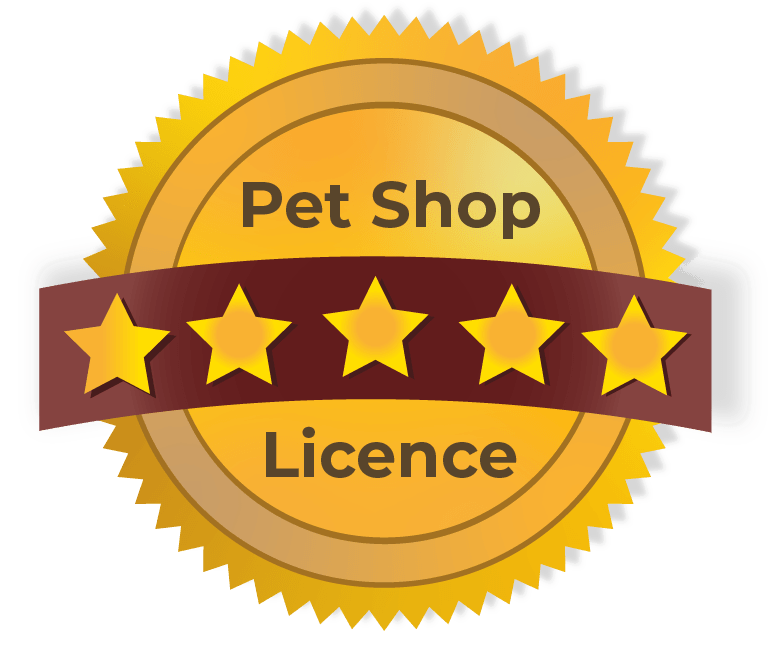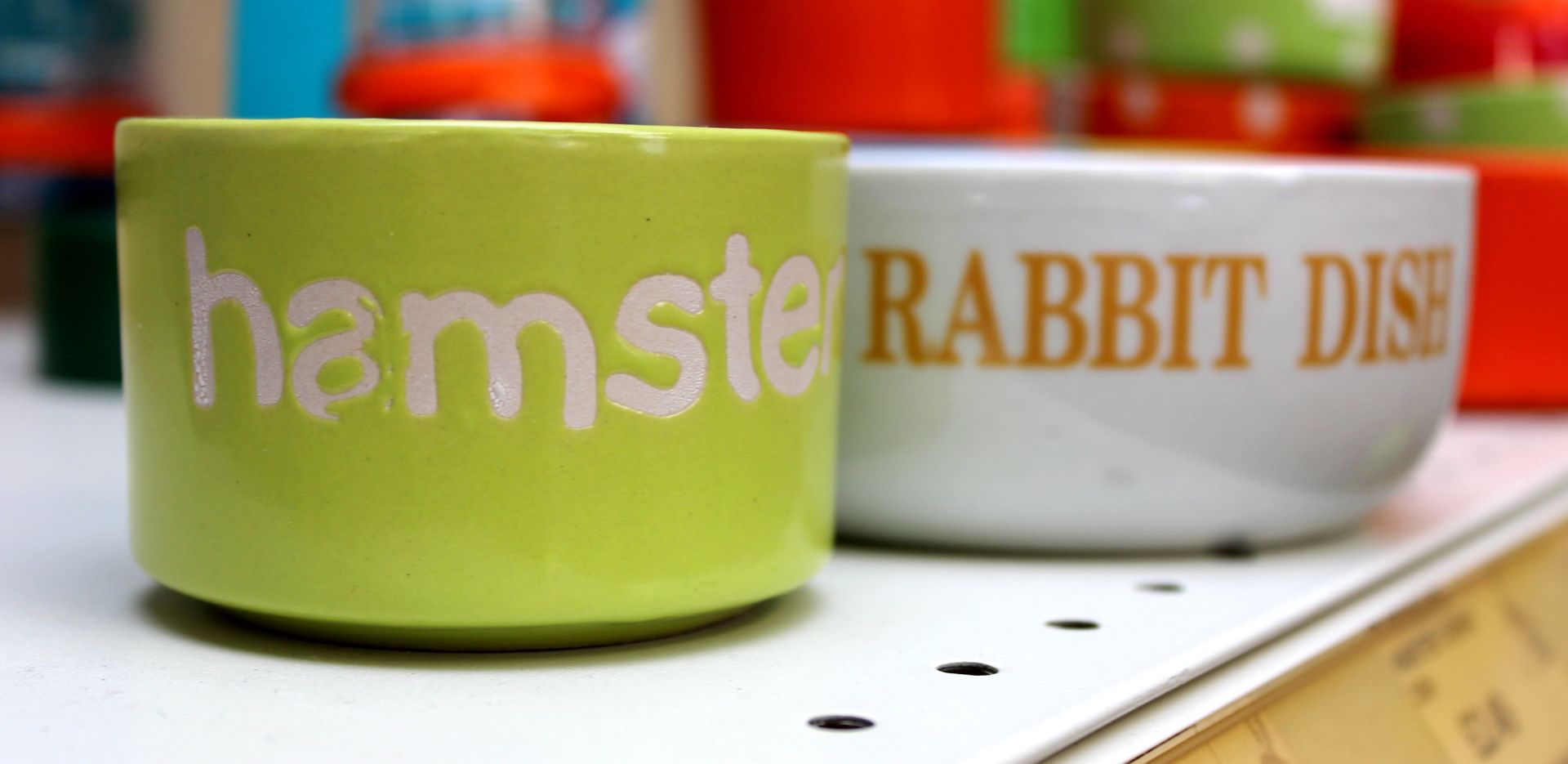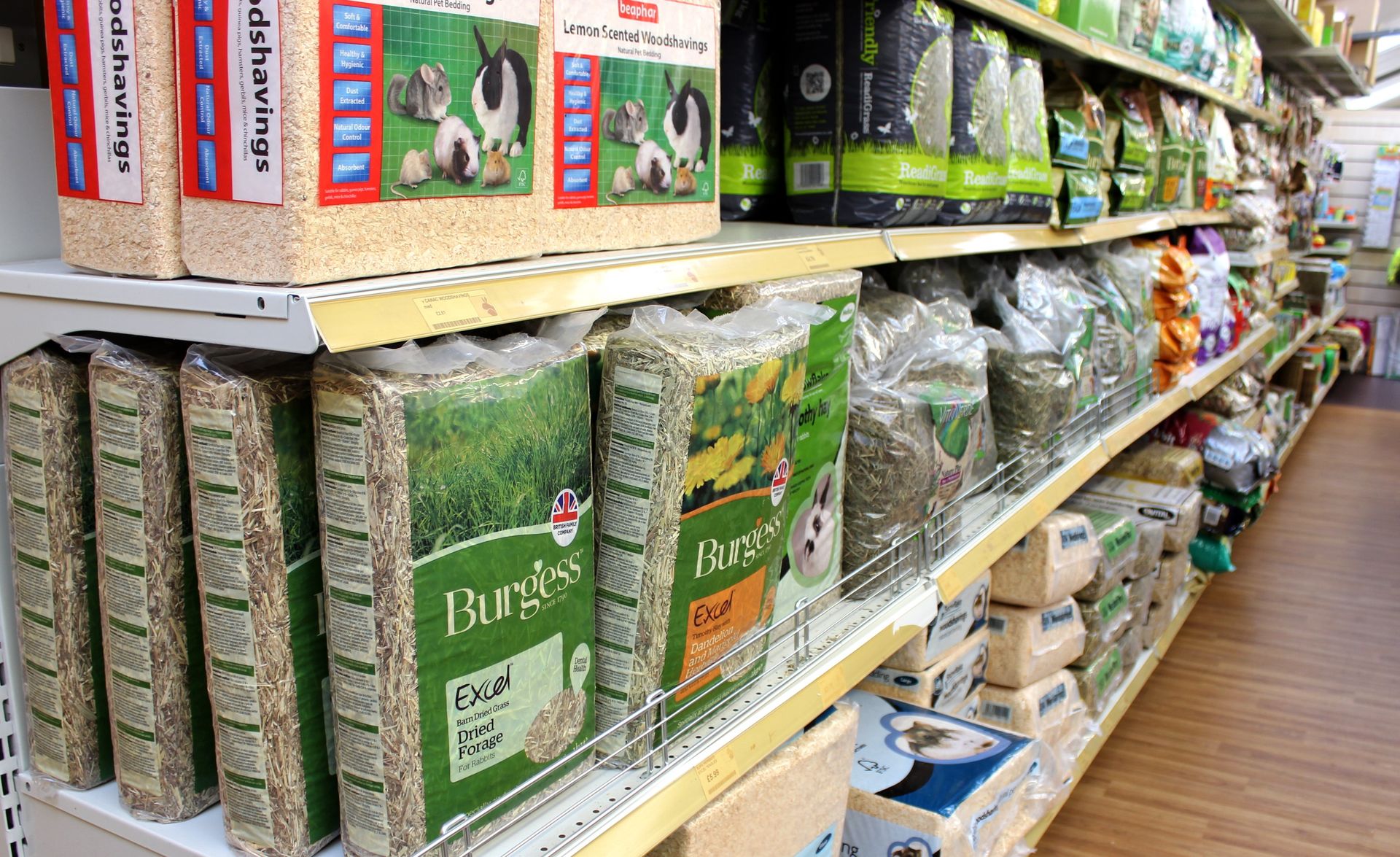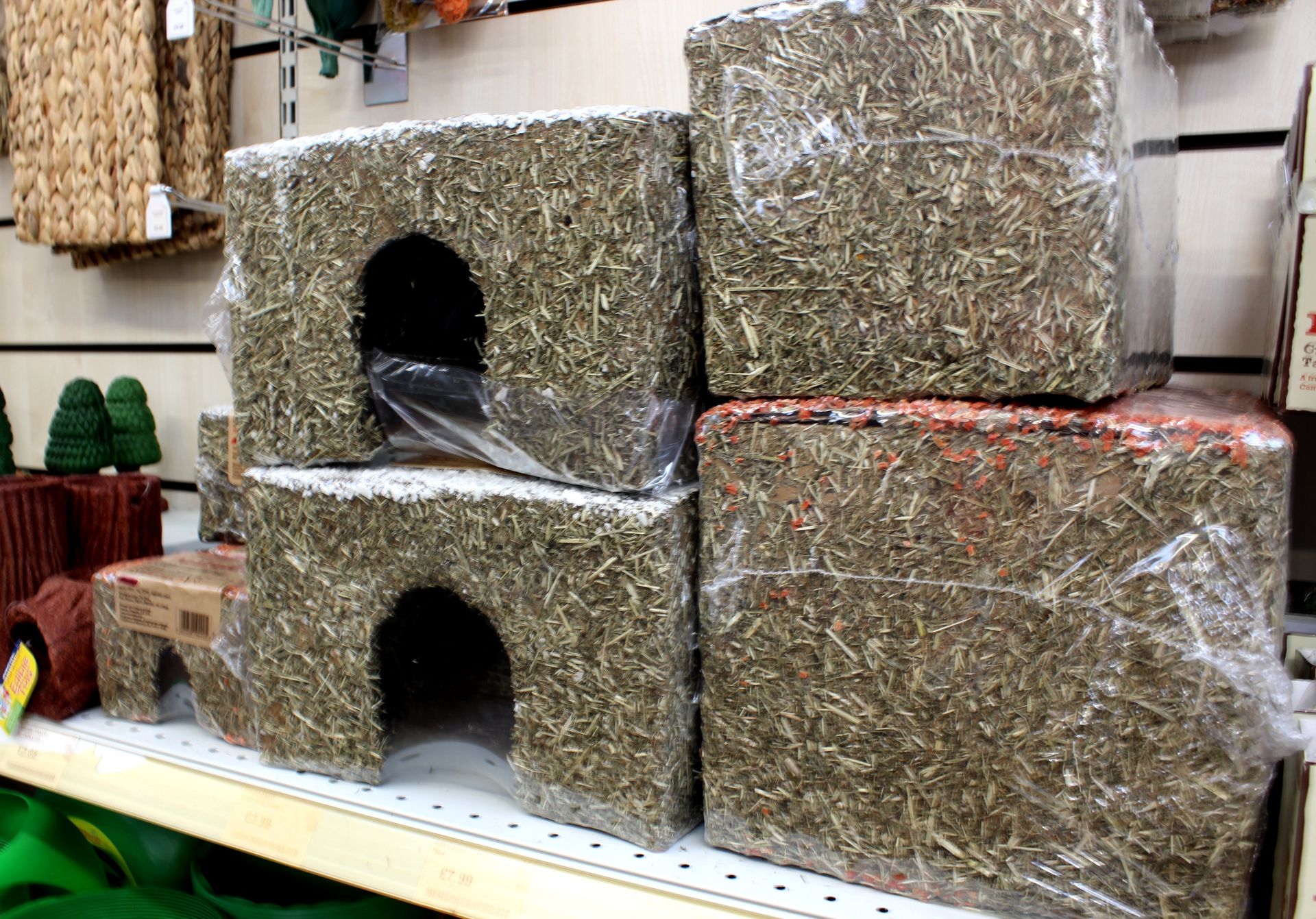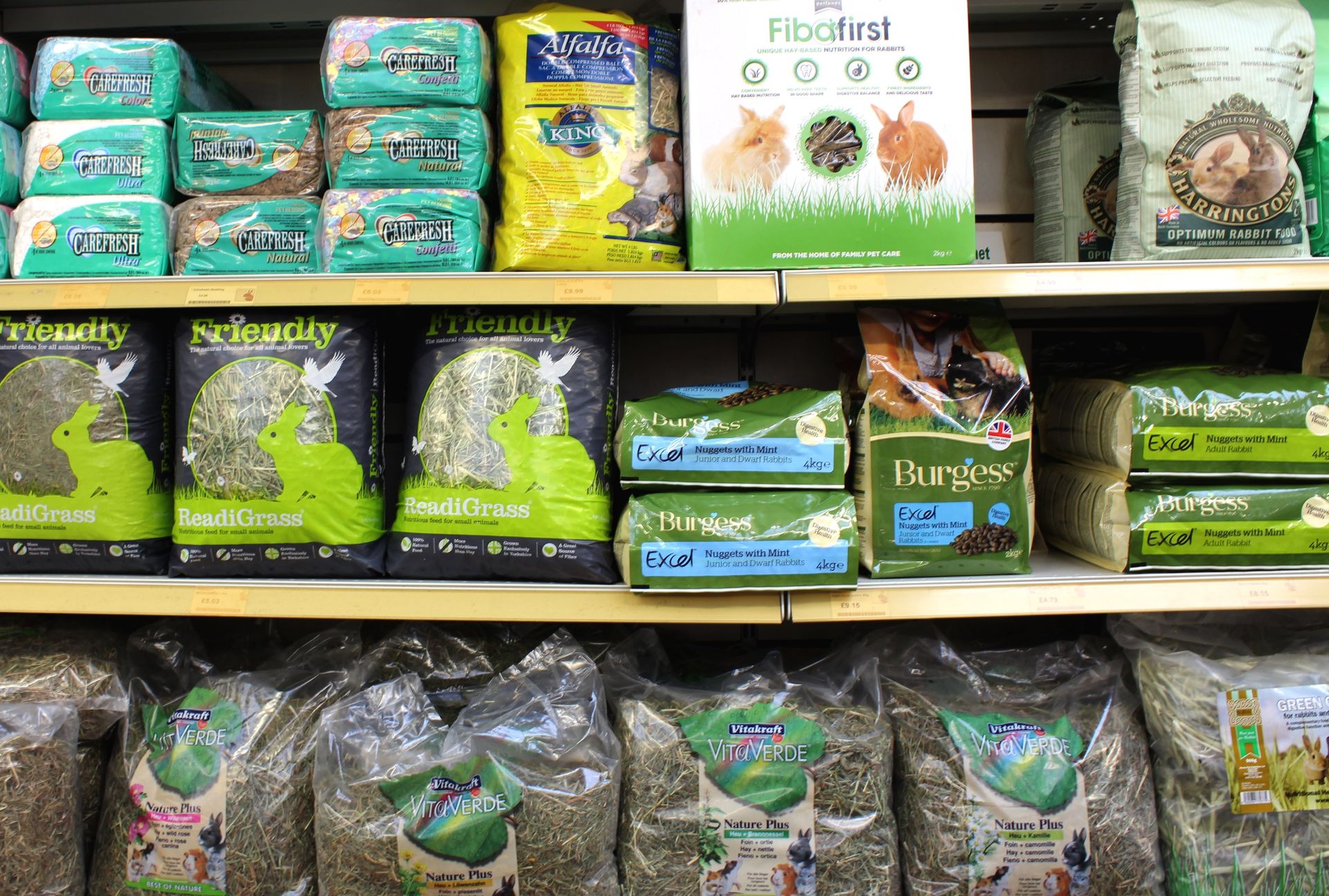Rabbits
Pets Plus source their rabbits only from reliable and responsible breeders, they are quarantined for 7 days before being released for sale. Pets Plus specialise in miniature varieties of rabbits which make pleasing house pets or can be kept outside in suitable sturdy housing resistant to predators and positioned out of strong sunshine, driving rain and cold winds.
Products available in store:
- Hutches and Runs - Sturdy good quality solid wooden hutches and runs which have felt roofs and are treated with none toxic preservative. These hutches will last years.
- Indoor Cages - Large enough for the rabbit to feed, drink, sleep and exercise, more exercise will be possible when socialised outside of its cage.
- Various hides, food dishes, drinking bottles, toys and tunnels.
- A good variety of foods, treats, natural treats, wooden knaws, willow knaws and tunnels, mineral blocks
- Various wood flakes, hays and straws
- Shampoos and treatments
- Books
Useful Information
Mini rabbits thrive on Excel Rabbit Food for Dwarf Rabbits, do not over feed. Supplement the diet with raw carrot, small amount of greens, hay and when weather permits allow access to fresh grass. Do not feed lettuce. Replenish food and water daily, cleaning dishes and bottles as you do so.
Pick bedding over daily removing moistened areas and droppings, thoroughly clean weekly using an animal friendly disinfectant. Use hygiene gloves and discard afterwards, wash hands when finished.
Treat rabbits for fly strike during the summer months, indoor rabbits are also susceptible. Treatment is available from Pets Plus.
llnesses
- Ringworm - Produces hair loss and scaly skin normally in round patches.
- Abscesses - Common in rabbits, particularly around the face, difficult to treat, needs veterinary attention
- Fly strike - Flies lay eggs under tail which hatch into maggots and penetrate the vent, usually fatal. Treat with spray to deter flies, keep rabbits in clean conditions, Inspect for Faecal accumulation under tail, clean off if necessary.
- Sore Hocks - Hair loss and skin ulceration due to poorly designed mesh floors or damp dirty solid floors. Good hygiene will help to avoid this condition.
- Overgrown teeth - Abnormal wear, the affected teeth need to be trimmed back, condition may re-occur. May be inherent.
- Diarrhoea/enteritis - Poor husbandry or diet. Bacterial., protocal or fungal agent.
- Patercuellosis (snuffles) - Commonest cause of illness in rabbits. Caused by Pasteurella Multilida found in respiratory tract. Clinical signs triggered by stress. Infected rabbits show Rhinitis (inflammation of the nose).
- Conjunctivitis (inflammation of the eyes)
- Bronchopneumonia - Poor ventilation and overcrowding in damp conditions. Avoiding stress minimises the occurrence.
- Middle ear and inner ear disease - head tilting and circular motion, ataxia. often caused by pasteurella multocida.
- Posterior paralysis - Caused by damage to lumbar spine
- Myxomatosis - A viral disease transmitted from wild rabbits by the rabbit flea. Purulent (pussy) conjunctivitis with swelling of the eye region spreading to involve head and neck. condition is fatal. Seek early inoculation
Rabbits Needs
- Indoor rabbits cage large enough to accommodate them and provide room for exercise, resting, feeding and toilet facilities (litter tray) when not socialised outside the cage, Pets Plus suggest a minimum length of one metre.
- Outdoor rabbits hutch large enough to accommodate them and provide exercise, resting, feeding and toilet facilities when not enjoying supervised freedom in the garden or in an exercise run. Pets Plus suggest a minimum length of four feet (approx 1200 mm) situated in a sheltered position from strong winds and sunshine. Provide extra protection during winter months. e.g. garage, shed or insulate hutch.
- Rabbits purchased later in the year should be kept indoors until spring of the following year when they may be accommodated outside, (weather permitting) where they will acclimatise in preparation for the following winter.
- A supply of clean water and food which should be changed daily and fresh food debris should be removed daily.
- Hay and grass is essential for care of teeth and helps digestion, ensure its availability.
- Rabbits may become stressed following a move, feed only hay for the first two days following a move to avoid stomach upsets which may lead to dehydration and more serious conditions.
- Wooden gnaws including willow to keep teeth and gums in good condition.
- Straw bedding in sleeping quarters and to cover wood flakes in the exercise area of the hutch. Increase straw in the bedding area during winter months.
- Clean living conditions.
- Company and affection.
If you would like to view our range of small animal products, please visit our shop or feel free to call us for advice or to check the availability of any items that you may want.
